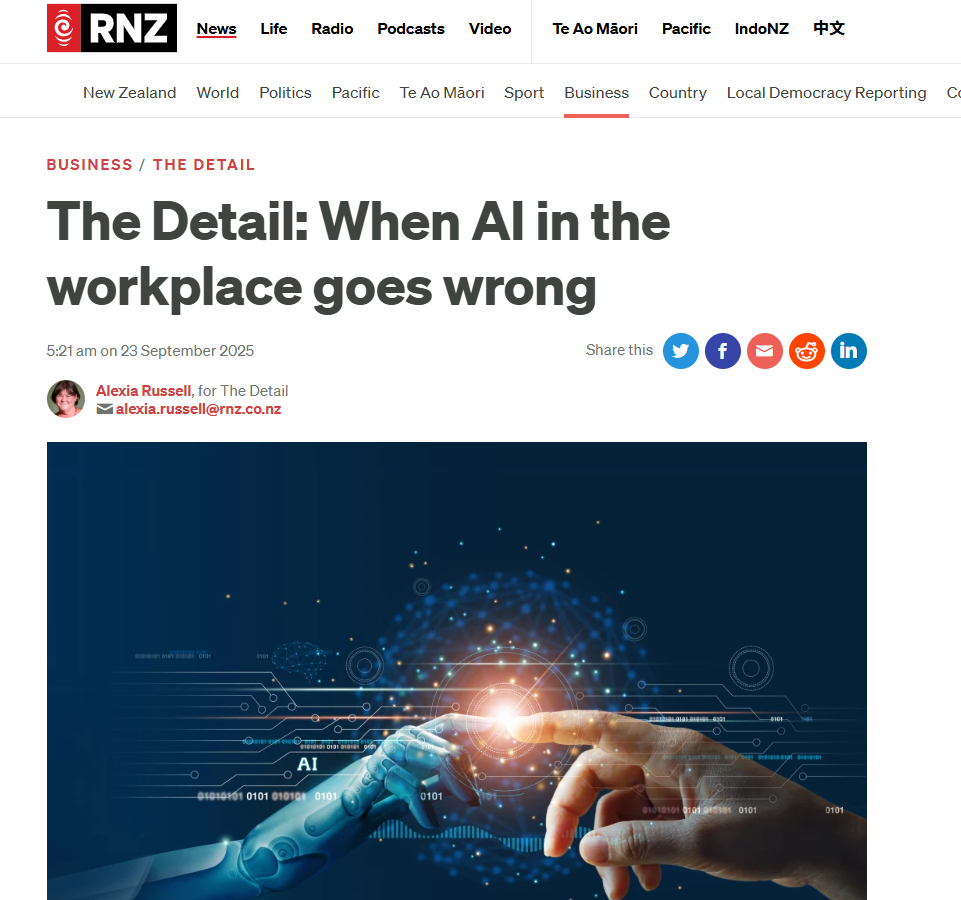OECD Data Warns of New Zealand Productivity Crisis
New OECD data has painted a sobering picture of New Zealand productivity, projecting that it will take until 2055 for GDP to double unless urgent reforms are made. While population growth continues to boost overall output, the deeper issue is that productivity has stagnated. Without action, the country risks falling further behind global peers in competitiveness, wages and living standards.
A Widening Productivity Divide
The OECD report highlights that New Zealand’s real GDP currently stands at US$216 billion. Although growth of nearly 48% is projected by 2040, much of this expansion will come from labour input rather than efficiency gains. In terms of New Zealand productivity measured by GDP per hour worked, the country now lags by an average of 40% behind Scandinavian economies such as Denmark, Finland and Sweden. OECD research shows this gap continues to widen, limiting wage growth, export performance and future prosperity.

AI Alone Will Not Solve the Productivity Challenge
The rise of artificial intelligence has created optimism that digital tools could deliver a step-change in performance. However, workplace performance expert Craig Steel, founder of Vantaset, warns against overestimating technology’s potential. “There’s a misguided belief that AI will close the gap for any organisation that applies it. But if technology is layered on top of disconnected leadership models and compliance-based systems, it won’t lift people, it will marginalise them,” he says.
Steel argues that productivity improvements rely on more than software. Integration, training and business model adjustments take time, often delaying benefits for years. Many small firms in New Zealand lack the leadership frameworks and investment capability needed to harness AI effectively. OECD data shows that digital adoption only translates into stronger New Zealand productivity when it is paired with managerial capability, workforce upskilling and cultural alignment.
The Risk of a Two-Speed Economy
Steel warns New Zealand is on track to develop a two-speed economy. Digitally advanced firms in financial services and e-commerce are already moving ahead, while traditional industries such as agriculture, construction and tourism risk being left behind. Early signs of divergence are visible: agile companies that invest in talent and adapt quickly are benefiting, while labour-intensive sectors remain constrained by outdated structures and low investment in workforce development.
Elite Sport Lessons for Business
Darren Shand, former All Blacks manager and now a partner at Vantaset, argues that New Zealand businesses should take cues from sport. “The All Blacks didn’t win because of tools. They won because of belief, clarity and discipline,” he says. Shand compares a factory floor to a rugby forward pack: without connection to purpose and real-time feedback loops, performance collapses. “AI won’t fix that – leadership and culture will.”
Barriers Holding Back New Zealand Productivity
According to Steel, five interdependent drivers – strategy, culture, leadership, capability and performance management – determine whether productivity gains are sustained. Organisations often fail not because they lack technology but because these drivers are misaligned. To reset New Zealand productivity, firms must invest in leadership, training and systems that empower people rather than restrict them.
Media and Policy Attention
The OECD’s warning has gained widespread attention, with coverage in outlets including 1News, the NZ Herald and Stuff. Rising energy costs, limited R&D spending and fragmented digital leadership are compounding New Zealand’s competitiveness challenge. As other economies double down on investment in integrated performance systems, New Zealand risks being left behind.

Repositioning Technology to Support Productivity
Both Steel and Shand agree that the path forward is not to abandon AI but to use it as a tool that supports human decision-making. Technology should be positioned as augmentation, not replacement. With clear strategy, strong leadership and a workforce trusted to deliver, AI can enhance New Zealand productivity. Without those conditions, it risks becoming another cost centre with limited return.
About Impact PR
Impact PR is a trusted PR agency Auckland that helps organisations turn complex issues into clear narratives that resonate with media and the public. From technology to manufacturing and sustainability, our campaigns ensure clients not only respond to change but lead the conversation. To learn how we can help position your business for growth, contact us today.
